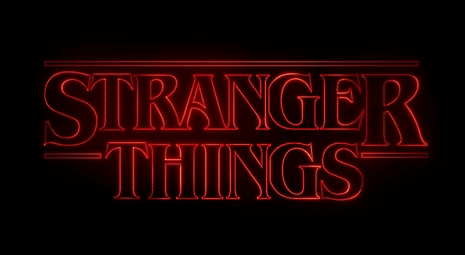Spooky! Why we are all obsessed with the supernatural
From Stranger Things to Halloween, the supernatural is embedded in our culture. Sam Brown asks how this curious phenomenon realises itself in modern media

The John Lewis advert is forever a flashpoint for controversy. Viewers cast their mixed verdicts on the retailer’s most recent marketing effort on Twitter: “So ready to cry,” said one. “Lost their magic touch,” said another. Regardless of the ambiguous response to Moz the monster and his friendship with Joe, this use of a supernatural creature in a Christmas advert says a lot about how the paranormal has been normalised in consumer culture and how the purpose of the uncanny has evolved over time.
In the past, the supernatural was used to explain the unexplainable. Medieval witchcraft denunciations were a way of excluding the mentally ill. Similarly, Mary Shelley’s Frankenstein attempts to make sense out of the rapid innovations in electrical technology in the early 19th century through her grotesque creation. Today, however, our paranormal obsession is defined through human nature. Engaging with supernatural thrillers allows a fantastical escapism from a reality that, thanks to the scientific revolution, we understand and comprehend almost too rationally.
“Supernatural thrillers reveal a deeply-rooted flaw in modern society”
In our increasingly irreligious society, the spiritual and superstitious elements of life that we previously relied on to give existence an objective meaning have been degraded and rationalised. Many of us hang on to certain superstitions and rituals such as wearing ‘lucky’ items of clothing and not walking under ladders. The supernatural, as expressed in modern film, television, and literature, is a way of reinjecting rational life with the excitement of the unnatural and unexplainable, providing a route out of our own ultimately mundane daily routine.
The supernatural has always had a presence in Hollywood, and recent shows such as The Walking Dead and True Blood suggest the paranormal is still garnering enough viewers to draw large investment. Such shows play clearly upon the common plot motif of the generic individual finding both purpose and confidence through conflict with a supernatural evil. The intrusion of the ‘Upside Down’ dimension into the small-town America setting of Stranger Things provides a common enemy against which the four protagonists can fight, coming of age in the process. However, entertaining as they may be, supernatural thrillers reveal a deeply-rooted flaw in modern society: experiencing alienation in the face of mass consumerism, paranormal narratives allow us to verify ourselves as unique individuals.
Our response to the supernatural on screen goes beyond a validation of self. Researchers into a new field of ‘neurocinematics’ – focusing on our psychological response to film and television – have found that supernatural images on the screen can bypass rational thought processes and filters and stimulate the part of the brain responsible for primal instincts, desires, and reactions: the amygdala. Before Netflix, Chai Lattes and modern society, this part of the human brain was devoted to perceiving objects or predators that were ‘supernatural’ in the sense that they were unwanted and dangerous intrusions into a tribe.
“Our response to the supernatural on screen goes beyond a validation of self.”
Today, we are less threatened by large predators and more by subtler forms of danger. Even with our daily barrage of anxieties relating to work and social life, our amygdala will still not receive the stimulation that our Neolithic ancestors did. Experiencing the supernatural on screen is as close as many of us can get to beastly attack, and it gives our brains a much needed ‘fear stimulus’ which can act as a form of catharsis.
The ‘supernatural’ is not a universal term and its definition shifts depending on cultural and historical context. Bram Stoker’s now legendary Dracula was in many ways a reaction to early 20th century anxieties surrounding homosexuality and the increasing sexual and political freedoms of women. In a similar vein, Stranger Things uses its supernatural theme as a plane onto which an all-consuming 80s-nostalgia can plant itself.
Of course, our experience with the supernatural should not be limited to forms of fictional media. Many people still believe in the reality of the paranormal and use this to understand sightings and experiences that are unexplainable. Ghost, UFO, and Loch Ness monster sightings are the most frequent of these, with as many as three-quarters of Americans believing in the paranormal, in some form, while nearly one in five claim to have actually seen a ghost. Some of these ‘experiences’ are easily explainable, and are caused by faulty brain activity. Paranormal sightings can also be rationalised as psychological ‘protective shields’: when suffering an emotional or physical ordeal, the brain may hallucinate images to distract from the reality. Regardless of the explanations for supernatural experiences, the frequency of them suggests our paranormal obsession is as strong as ever.
The supernatural is now such an established genre within our modern culture that, as with the John Lewis advert, it is not simply a way of causing shock in an audience, but a motif that can be deployed in messages of positivity. Historically, media featuring paranormal themes flourishes when people are collectively worse off and poorer than usual. Perhaps, then, the recent flourish in uncanny and paranormal television series is simply the result of a post-Trump, post-Brexit nihilism. How very superstitious
 News / Right-wing billionaire Peter Thiel gives ‘antichrist’ lecture in Cambridge6 February 2026
News / Right-wing billionaire Peter Thiel gives ‘antichrist’ lecture in Cambridge6 February 2026 News / Cambridge students uncover possible execution pit9 February 2026
News / Cambridge students uncover possible execution pit9 February 2026 News / Epstein contacted Cambridge academics about research funding6 February 2026
News / Epstein contacted Cambridge academics about research funding6 February 2026 News / Man pleads guility to arson at Catz8 February 2026
News / Man pleads guility to arson at Catz8 February 2026 News / John’s duped into £10m overspend6 February 2026
News / John’s duped into £10m overspend6 February 2026










